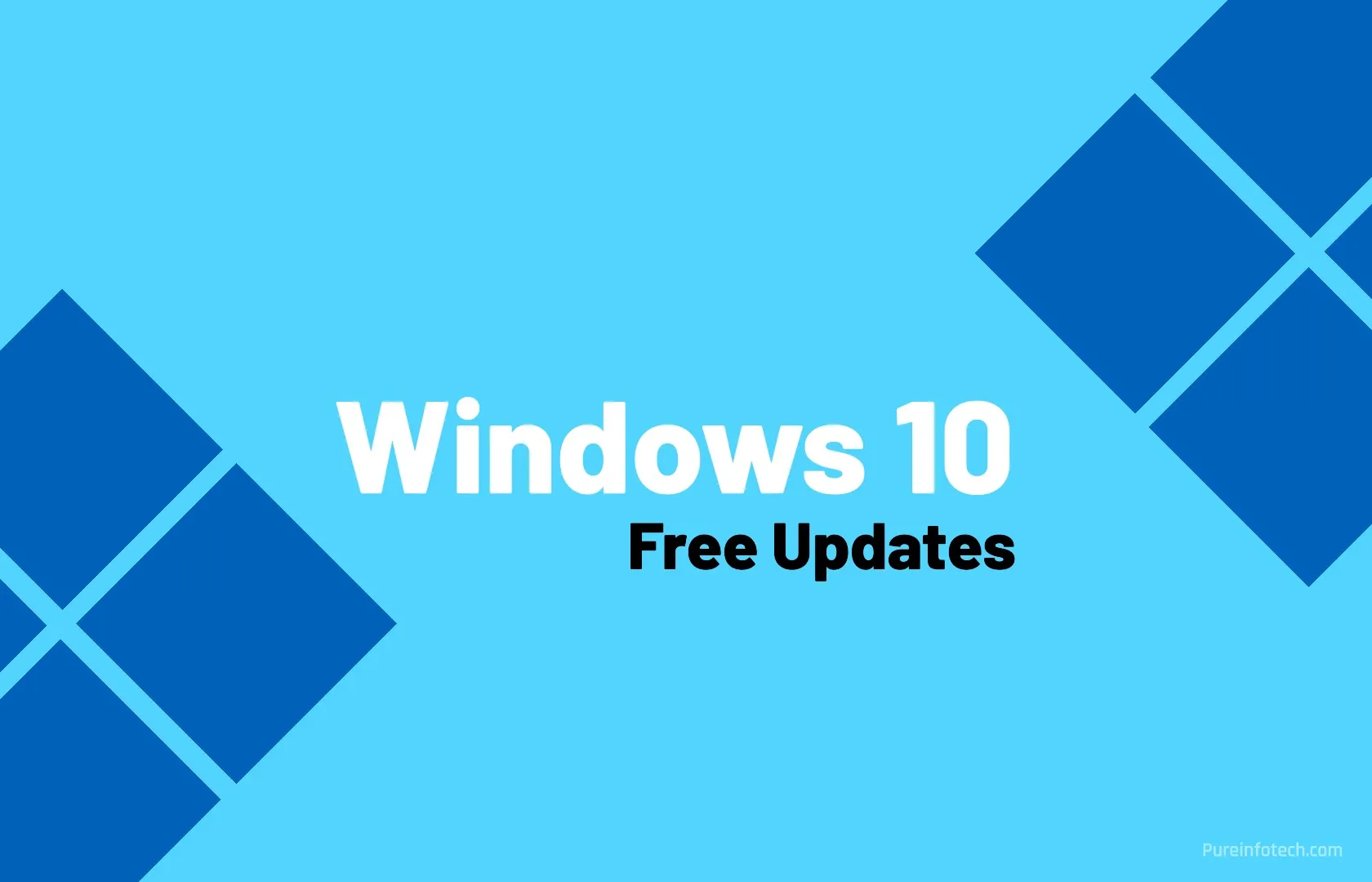How to Setup and Use Webshare Proxy for for Business Growth

Proxies are essential for scalable business solutions as they enable secure, efficient, and automated online operations. They help businesses collect valuable data through web scraping, conduct market research without restrictions, and manage multiple accounts without the risk of bans. With the right proxy setup, companies can scale their digital businesses seamlessly while maintaining reliability and compliance.
Webshare Proxy is a powerful and cost-effective solution that provides businesses with scalable, high-performance proxies to enhance their business activities.
This guide will walk you through the process of setting up and using Webshare Proxy effectively. From choosing the right plan to configuring proxies for various business needs, we will explore how Webshare Proxy can help improve efficiency, security, and scalability.

Webshare provides a variety of high-performance proxy solutions designed to meet different business needs, including Residential Proxies, Static Residential Proxies, and Proxy Servers. These solutions ensure secure and reliable web data access while ensuring high speeds, unlimited bandwidth, and ethical compliance. The solutions are as follows:
1. Residential Proxies: Webshare’s Residential Proxy network consists of over 30M ethically sourced IPs that offer a powerful solution for businesses that need anonymity and reliability. These proxies mimic real users to ensure higher success rates for web scraping and data collection. Key features include:
- Ethically Sourced Network: The residential proxy pool comes from carefully vetted partners who comply with strict business ethics and industry regulations.
- Affordable Pricing: Webshare provides some of the most cost-effective residential proxy plans, with pricing starting as low as $4.50 per GB.
- 99.7% Uptime & Stability: The residential proxies offer a highly stable and reliable connection, minimizing disruptions during scraping or automated tasks.
- Bypass Blocks & CAPTCHAs: Webshare’s residential proxies ensure a human-like browsing experience. This allows businesses to bypass IP bans, geo-restrictions, and CAPTCHA challenges with ease.
- Global IP Pool: Businesses can choose from a vast pool of 30M+ IPs connected to real residential devices worldwide for authenticity and higher success rates.
2. Static Residential Proxies: Webshare’s Static (ISP) Residential Proxies combine the speed of datacenter proxies with the legitimacy of residential IPs, making them ideal for businesses that require fast and stable connections. Key features include:
- High-Speed Performance: Webshare utilizes Gigabit-speed static residential proxies, ensuring seamless and uninterrupted browsing or scraping at speeds of up to 1Gbps.
- Unlimited Bandwidth: Unlike other proxy providers that charge per GB, Webshare offers unlimited bandwidth for Static Residential Proxies. This allows businesses to scrape or access large volumes of data without restrictions.
- Global Coverage: These proxies are sourced from well-known Internet Service Providers (ISPs) like AT&T, Sprint, and Lumen. This ensures a stable and authentic connection from multiple locations worldwide.
- Dedicated & Persistent IPs: Unlike shared proxies, dedicated static residential proxies are assigned exclusively to a single user. The IP address remains permanently static, reducing the risk of detection and blocks.
3. Proxy Servers: For businesses that need fast, anonymous, and budget-friendly proxy solutions, Webshare also provides a vast selection of proxy servers with HTTP and SOCKS5 support. Key features include:
- Affordable Pricing: Plans start at just $2.99 per month, making it an economical option for users who require multiple proxies on a budget.
- High-Speed Connectivity: Proxy servers are optimized for high-speed data transfer and handle fast traffic efficiently. Each proxy server is connected to a dedicated Gigabit internet line, ensuring optimal performance.
- Customizable Options: Users can configure proxy locations, bandwidth limits, thread count, and speed based on their specific needs.
- Private & Secure: Webshare prioritizes user privacy, ensuring no data logs are shared with third parties, providing a secure environment for sensitive online activities.
Setting up Webshare Proxy is a straightforward process that involves creating an account, selecting the appropriate proxy plan, and generating the necessary credentials for use. Below is a step-by-step guide to getting started with Webshare Proxy.
Creating an Account
To use Webshare Proxy, you first need to create an account on the Webshare platform:
- Visit the Webshare Proxy website.
- Click on the Sign-Up button and enter your email, username, and password.
- Verify your email address to activate your account.
- Log in to your Webshare dashboard to access proxy settings.
Choosing the Right Proxy Plan
Webshare offers both free and paid proxy plans, depending on your business needs. Consider the following when selecting a plan:
- Free Plan: Webshare provides 10 proxies with 1GB of data per month for free, with no time limit. You only pay if you want extra features, more bandwidth, or additional proxies. This is suitable for small-scale use with limited bandwidth and fewer proxy options.
- Paid Plans: Offer higher speeds, more proxy locations, rotating IPs, and better security features. The paid plans offer a variety of pricing options designed to meet different business needs, depending on the number of proxies and bandwidth required.
To choose a plan, go to the Pricing or Upgrade section in the dashboard, choose a plan that suits your business needs, and complete the payment process if you’re selecting a paid plan.
Generating Proxy Credentials
Once your plan is active, you need to generate proxy credentials to start using the service.
- Go to the Proxy List or My Proxies section in your Webshare dashboard.
- Choose the type of proxy you want (e.g., HTTP, HTTPS, or SOCKS5).
- Copy the provided proxy details, including:
- Proxy IP Address
- Port Number
- Username and Password (for authentication-based proxies)
- (Optional) Enable IP Whitelisting if you prefer to use your proxies without authentication.
With these credentials, you can now configure Webshare Proxy on your browser, applications, or automated tools to start benefiting from secure and scalable business solutions.
After setting up your Webshare Proxy account and obtaining the necessary credentials, the next step is configuring it for use. Depending on your needs, you can set up Webshare Proxy on web browsers, operating systems, or automation tools. Below are the configuration steps for different use cases.
Setting Up Webshare Proxy on Web Browsers
Using a proxy on a web browser allows for anonymous browsing and access to geo-restricted content.
For Google Chrome & Microsoft Edge:
- Open Settings and navigate to System > Open your computer’s proxy settings.
- Under Manual Proxy Setup, enable Use a proxy server.
- Enter the Proxy IP address and Port from Webshare.
- If authentication is required, enter the username and password when prompted.
- Click Save and restart your browser.
For Mozilla Firefox:
- Open Settings, scroll down to Network Settings and click Settings.
- Select Manual proxy configuration and enter the Webshare Proxy details.
- Choose Use this proxy server for all protocols (if applicable).
- Click OK to save the settings.
Configuring Webshare Proxy for Operating Systems
To route all system traffic through Webshare Proxy, you can configure it directly on your operating system instead of going through your browser.
For Windows:
- Go to Settings > Network & Internet > Proxy.
- Enable Use a proxy server under Manual proxy setup.
- Enter the Proxy IP and Port, then save the settings.
For macOS:
- Open System Preferences > Network and select your active connection.
- Click Advanced > Proxies and choose HTTP, HTTPS, or SOCKS5.
- Enter the proxy details and authentication credentials.
- Click OK and apply the changes.
Configuring Webshare Proxy for Automation Tools and Bots
Many businesses use proxies for web scraping, data mining, and automation tasks. Webshare Proxy supports integration with various tools and scripts.
For Python (Requests Library):
import requests
proxies = {
"http": "http://username:password@proxy-ip:port",
"https": "https://username:password@proxy-ip:port"
}
response = requests.get("https://example.com", proxies=proxies)
print(response.text)
For Selenium WebDriver:
from selenium import webdriver
from selenium.webdriver.common.proxy import Proxy, ProxyType
proxy = "username:password@proxy-ip:port"
webdriver.DesiredCapabilities.CHROME["proxy"] = {
"httpProxy": proxy,
"ftpProxy": proxy,
"sslProxy": proxy,
"proxyType": "MANUAL",
}
driver = webdriver.Chrome()
driver.get("https://example.com")
Authentication Methods
Webshare Proxy offers two authentication methods:
- Username/Password Authentication: Users enter credentials manually when setting up the proxy.
- IP Whitelisting: Users can register their IP address in the Webshare dashboard to avoid entering credentials each time.
Using Webshare Proxy for Business Solutions
Webshare Proxy offers businesses a reliable and scalable way to optimize online operations. From web scraping to market research and social media management, proxies provide enhanced security, anonymity, and efficiency. Below are some key business applications of Webshare Proxy:
Web Scraping and Data Collection: Businesses rely on web scraping to gather insights from competitors, market trends, and customer preferences. Webshare Proxy helps prevent IP bans and CAPTCHAs while enabling large-scale data collection.
- Use rotating proxies to avoid detection.
- Distribute requests across multiple IPs for efficiency.
- Ensure compliance with website terms of service to avoid legal risks.
Example: Using Python with Webshare Proxy for Web Scraping
import requests
from bs4 import BeautifulSoup
proxies = {
"http": "http://username:password@proxy-ip:port",
"https": "https://username:password@proxy-ip:port"
}
response = requests.get("https://example.com", proxies=proxies)
soup = BeautifulSoup(response.text, "html.parser")
print(soup.title.text)
Managing Multiple Accounts and Social Media Automation: Businesses that run multiple social media accounts or e-commerce stores need proxies to avoid detection and bans.
- Assign different proxies to each account to mimic real users.
- Automate social media engagement while maintaining compliance.
- Use proxies for bulk posting, messaging, and content scheduling.
Example: Using Webshare Proxy with Instagram Automation (Instabot)
from instabot import Bot
bot = Bot(proxy="http://username:password@proxy-ip:port")
bot.login(username="your_username", password="your_password")
bot.follow("target_account")
Price Tracking & Monitoring: Businesses use Webshare proxies to analyze pricing trends, track competitor prices, and implement dynamic pricing strategies. By rotating proxies, companies can scrape public pricing data without detection. This ensures they make data-driven pricing decisions.
- E-commerce Proxies: Secure and fast proxies help e-commerce platforms gather pricing intelligence and assess competitors’ product offerings.
- Amazon Proxy Server: Designed specifically for scraping Amazon’s public product data. This enables businesses to track price fluctuations, analyze reviews, and optimize inventory strategies.
Anti-Fraud & Cybersecurity: Cybersecurity and fraud prevention teams leverage Webshare proxies to maintain anonymity while conducting security audits, ad verification, and fraud detection.
- Proxies for Ad Verification & Monitoring: Helps digital marketers and advertisers validate their ads in different locations and detect fraudulent ad placements.
- Proxies for Cybersecurity: Cybersecurity professionals use proxies to conduct penetration testing, manage multiple social media accounts securely, and bypass geo-restrictions on security content.
Reputation & Brand Monitoring: Companies use Webshare proxies to monitor brand reputation, customer sentiment, and competitive analysis on a global scale.
- Proxies for Brand Monitoring: Allows businesses to track reviews, social media mentions, and sentiment analysis to ensure brand consistency and customer satisfaction.
- Proxies for Market Research: Helps organizations conduct global market research without IP or geographical restrictions, and use the insight gained to make better decisions.
To maximize the benefits of Webshare Proxy, businesses need to ensure optimal performance, speed, and reliability. Proper optimization helps avoid slow connections, IP bans, and detection by websites. Below are best practices for improving the performance of Webshare Proxy.
1. Rotating IPs and Avoiding Blocks: Websites often impose restrictions on repeated requests from the same IP address, which can lead to rate limiting or bans. Using rotating proxies helps distribute traffic across multiple IPs, making requests appear more natural.
How to Implement IP Rotation:
- Use Webshare’s Rotating Proxy Feature: Webshare provides rotating IPs that change at specified intervals.
- Use a Delay Between Requests: Introducing a small delay between web scraping requests can mimic human behavior and reduce the chances of getting blocked.
- Avoid Scraping High-Security Websites Too Aggressively: Sites with strict anti-bot measures may flag suspicious activity even with proxies.
- Implement Proxy Rotation in Code: When using proxies for automation, set up a system to switch between multiple proxy IPs.
Example: Rotating Proxies in Python
import requests
import random
proxy_list = [
"http://username:password@proxy1-ip:port",
"http://username:password@proxy2-ip:port",
"http://username:password@proxy3-ip:port"
]
proxy = {"http": random.choice(proxy_list), "https": random.choice(proxy_list)}
response = requests.get("https://example.com", proxies=proxy)
print(response.status_code)
2. Monitoring Proxy Usage and Performance: Regularly monitoring proxy usage and performance helps identify connection issues, slow response times, and potential IP bans. Utilize Webshare’s dashboard to track active proxies, bandwidth consumption, and connection speeds. Testing response times across different proxies allows you to determine the most efficient ones while logging errors and connection failures in automation scripts can reveal recurring issues and improve overall stability.
Example: Checking Proxy Status with Python
import requests
proxy = {"http": "http://username:password@proxy-ip:port"}
try:
response = requests.get("https://www.google.com", proxies=proxy, timeout=5)
print("Proxy is working, status code:", response.status_code)
except requests.exceptions.RequestException:
print("Proxy failed or timed out")
3. Replacing Slow or Blocked Proxies: If a proxy becomes slow, consider switching to another one from your Webshare proxy pool. For accessing geo-blocked content, try using proxies from different locations. If performance issues continue, reach out to Webshare support for assistance.
Best Practices for Speed and Security
Proxy performance is influenced by various factors such as network congestion, server load, and the type of proxy used. The choice of proxy directly affects its speed and reliability, with each type offering different advantages and trade-offs. It’s important to choose the right proxy based on the specific needs of the task at hand.
When selecting the appropriate proxy type for speed, Datacenter Proxies are often the fastest option but can be more easily detected by websites. Residential Proxies are more reliable in evading detection but may be slightly slower due to the routing through an ISP. SOCKS5 Proxies offer a good balance of speed and security. This is useful for activities like streaming or gaming, where both speed and privacy are crucial.
To optimize connection speed, selecting proxies from locations geographically closer to your target site will reduce latency. Using lightweight data requests, such as API endpoints, instead of loading full web pages can further speed up connections. It’s also essential to avoid using public Wi-Fi networks, as they can interfere with the proxy connection.
For those who require enhanced performance, upgrading to a premium Webshare plan offers higher-speed proxies and better bandwidth allocation. Lastly, ensuring security while using proxies is essential; using HTTPS proxies, enabling authentication, and regularly updating proxy credentials help maintain data security and prevent unauthorized access.
Conclusion
Investing in Webshare Proxy helps businesses stay ahead in an increasingly competitive and data-centric world. Throughout this guide, we have explored how to set up, configure, and optimize Webshare Proxy for various business applications. The step-by-step setup process ensures a smooth onboarding experience, while proper configuration across browsers, operating systems, and automation tools allows for seamless integration.
Optimizing performance by implementing IP rotation, using the right proxy types, and monitoring proxy health ensures businesses get the most out of their Webshare Proxy subscription. To maximize the benefits of Webshare Proxy, businesses should adopt best practices such as using rotating IPs, limiting request frequency, and ensuring proper authentication. Regular performance monitoring and proactive issue resolution can prevent disruptions and enhance operational efficiency.
Webshare Proxy is a powerful tool for businesses looking to drive business growth and stay ahead of competition. No matter your preferred use case, be it web scraping and market research, social media management or ad verification, Webshare provides the flexibility and security that modern businesses need for scalable business solutions.
Source link










